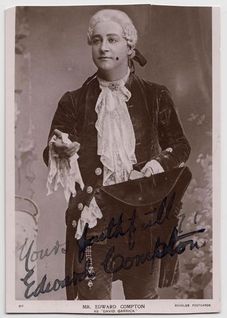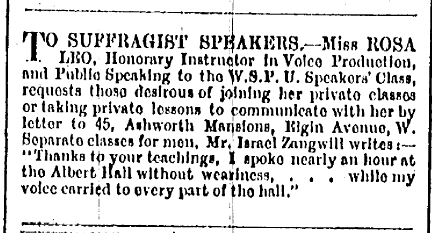|
Lyn Gardner's blog in the Guardian a month ago in August 2013 was entitled "Do stage actors mumble too much?" and quoted statements by both actress Imogen Stubbs and Rada's Artistic Director Edward Kemp that deplored a "naturalistic, mumbling style" and directors who encouraged it, "believing that laidback mumbling is more truthful." You can read Lyn Gardner's blog here and the Stubbs and Kemp article here. It's easy to think that standards of diction and elocution must have slipped over time - despite the excellent training most drama schools give - because modern performers work on tv, film and radio as well as the stage and therefore modulate and adapt their voices and style differently. Even on stage the ability to project isn't required nearly as often as it would have been in the past due to the many and varied uses of microphones to help balance levels in productions with music, singing or extensive sound design. I used to warm up my voice every day at drama school and took pride in practising my vocal exercises and breathing techniques - and have not often had the chance to work on stage and unamplified in spaces large enough or on pieces formal enough to use that training as I would like to. However I was amused to find that concerns about training and audibility were being voiced in what might be considered a 'golden age' for acting and training... The dashing chap below is the actor and theatre manager Mr Edward Compton. His wife was the actress Virginia Bateman and his children include the writer Compton MacKenzie and the actresses Fay Compton and Viola Compton, who was a member of the Actresses' Franchise League. In 1914, Edward Compton expressed his views "comparing present-day conditions on the stage with those that existed when he joined the profession forty years ago" and said the following:
I've been curious about how voice and elocution was taught in the late Victorian/early Edwardian era - when so many of the performers I'm studying were learning their craft. Whether you were learning from established performers on the job as part of a touring company or were lucky enough to be undergoing a period of practical training with someone like Sarah Thorne at the Theatre Royal Margate, the vocal skills, styles and range required of actors and actresses in that period are hard for us to imagine today. Suffragists were also taking speaking and elocution classes from actresses to help them develop strong voices and a confident style. Not only is it deeply interesting but it is doing excellent educational work both for the Suffrage movement and the art of public speaking. Miss Rosa Leo, the well-known elocutionist, who has kindly undertaken to act as coach, gave the class some very valuable hints on voice production, deportment, etc. Suffragist actress Rosina Filippi also gave speakers' classes as well as acting classes. Her book Hints to Speakers and Players published in 1911 is a passionate and lively account of her beliefs about how performers should act, speak, breath and move on stage and gives some fantastic examples of vocal exercises to warm up and train your voice and technique. Far from the Dickensian ladylike "Papa, Potatoes, Poultry, Prunes and Prism" exercises that might be expected, Filippi wants her pupils to engage with language wholeheartedly when developing character and communicating to audiences. I have been asked to write a book on "Elocution," but you all know what a horror I have of the word, which most of you pronounce as "Ella Kew-Shun"... I love Diction as much as I hate Elocution...So, to the four winds with Ella Kew-Shun, who would teach us how to speak and how to act. Nobody on earth ever spoke as she would have us speak. Here are a few rhythmic exercises for you to try! Dividing and gliding and sliding, And falling and brawling and sprawling, And driving and riving and striving, And sprinkling and twinkling and wrinkling, And sounding and bounding and rounding, And bubbling and troubling and doubling, And grumbling and rumbling and tumbling, And clattering and battering and shattering, And gleaming and streaming and steaming and beaming, And rushing and flushing and brushing and gushing, And flapping and rapping and clapping and slapping, And curling and whirling and purling and twirling, And thumping and pumping and bumping and jumping, And dashing and flashing and splashing and clashing. Exhilarating stuff! The whole book is fascinating and brings the professional theatre scene of the 1910s to life - with Filippi's tips on how to behave in your dressing room, where to go to research costume and how to deal with being upstaged by ambitious colleagues. Hopefully RADA [established and attended by many Actresses' Franchise League members and supporters] and the many other drama schools will continue to keep the flag flying high for diction and audibility on stage!
0 Comments
Leave a Reply. |
NaomiThoughts, reflections, bits of research Archives
April 2023
Categories
All
|


 RSS Feed
RSS Feed